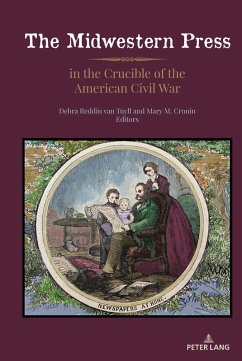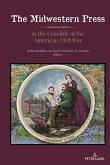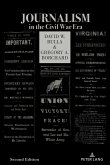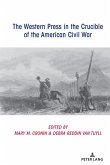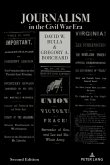The Midwestern press is probably the best example of the "typical" American press of the Civil War era. Its denizens were not the huge metropolitan dailies of New York and Philadelphia, nor were they the struggling weeklies of the western territories. They did not feel the hard hand of war as the Southern press did in its struggles to obtain enough paper and ink to continue printing. Instead, Midwestern publishers and editors mostly continued on, business as usual, with some disruptions as staff members joined up to fight the war for the Union, or were drafted.
Democratic newspapers experienced the most war-related trauma as neither political nor military leaders understood the concept of the loyal opposition and sought to shut down non-Republican newspapers or those that supported peace efforts.
Debra Reddin van Tuyll and Mary M. Cronin explore the history of the Midwestern press as it examines the political, social, and economic roles of the press. This work will be useful as a supplemental text in undergraduate or graduate journalism history classes and can be used in history classes that deal with the Civil War or the nineteenth century.
Democratic newspapers experienced the most war-related trauma as neither political nor military leaders understood the concept of the loyal opposition and sought to shut down non-Republican newspapers or those that supported peace efforts.
Debra Reddin van Tuyll and Mary M. Cronin explore the history of the Midwestern press as it examines the political, social, and economic roles of the press. This work will be useful as a supplemental text in undergraduate or graduate journalism history classes and can be used in history classes that deal with the Civil War or the nineteenth century.
Dieser Download kann aus rechtlichen Gründen nur mit Rechnungsadresse in A, D ausgeliefert werden.

